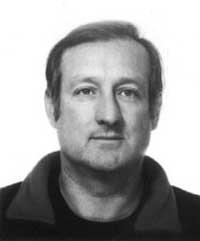Hierarchization of science
Western science, from its birth to the present, has hierarchized the universe and then applied scientific knowledge to this universe. The most complex structure that has developed in the evolution of our planet is society. To understand and learn a complex group of human beings in constant movement we have invented Sociology and the fundamental element of this branch of science is the social class. But if we follow the thread that goes from the most complex to the simplest, we will see that the whole of society is formed by individuals who are human beings.
The human being is an intelligent entity and to understand and analyze it we had to invent neuropsychology. In this branch of science the reference element is the neuron. Intelligent being is both a complex universe and a set of cells. To explain the functioning of these cells, we had to invent biology. The cells are formed by molecules and to understand the behavior of them it has been necessary to create a scientific field called Chemistry.

This development does not end therefore, since the basic elements of molecules are atoms. Physics is the most powerful discipline to understand the invisible world of atoms. Within atoms we have nuclei (formed by protons and neutrons) and to know and control this subuniverse nuclear physics has been created. And we know that there are smaller parts than protons and neutrons: quarks.
The history of Western science, as seen above, has focused on the hierarchization of the elements present in the universe and continues in the same line, for which accelerators are constantly being built increasingly expensive. For my part, I am increasingly clear that science is not abstract knowledge, but a special system built by a society to achieve concrete objectives.
We must not forget that our science was born in Europe about 400 years ago with capitalism. And undoubtedly, this science has repeated the basic values of the society in which it was born. We could say that the hierarchization of our science, which we have mentioned above, is only the reflection of a hierarchical society in the classes. A society cannot create a thought contradictory to its essence. And science is a kind of thought.
But on this planet we don't all think the same, not even philosophize. For example, for Eastern philosophy Natura is not a hierarchical system. For this philosophy, the universe is an interconnected system. The entire universe is not full of parts (fractions or atoms). As it is connected, all parts have the same value and the big one is not above the small one. Instead of ordering the hierarchy of the universe within a straight line (through the size of beings), they order them in a closed line. Part of this circle is a consequence of what is behind and the cause of the next. But if we place ourselves at another point in that circle, the first cause can become a trouble-free effect.
The magic proverb of this scientific philosophy would be: "Just as the parts are needed for the fulfillment of the whole, for them to be parts the whole is necessary." If nature had such behavior, Western science would never achieve its goal of finding the smallest fraction of matter. Because there is no minimum fraction (absolute).
Buletina
Bidali zure helbide elektronikoa eta jaso asteroko buletina zure sarrera-ontzian











